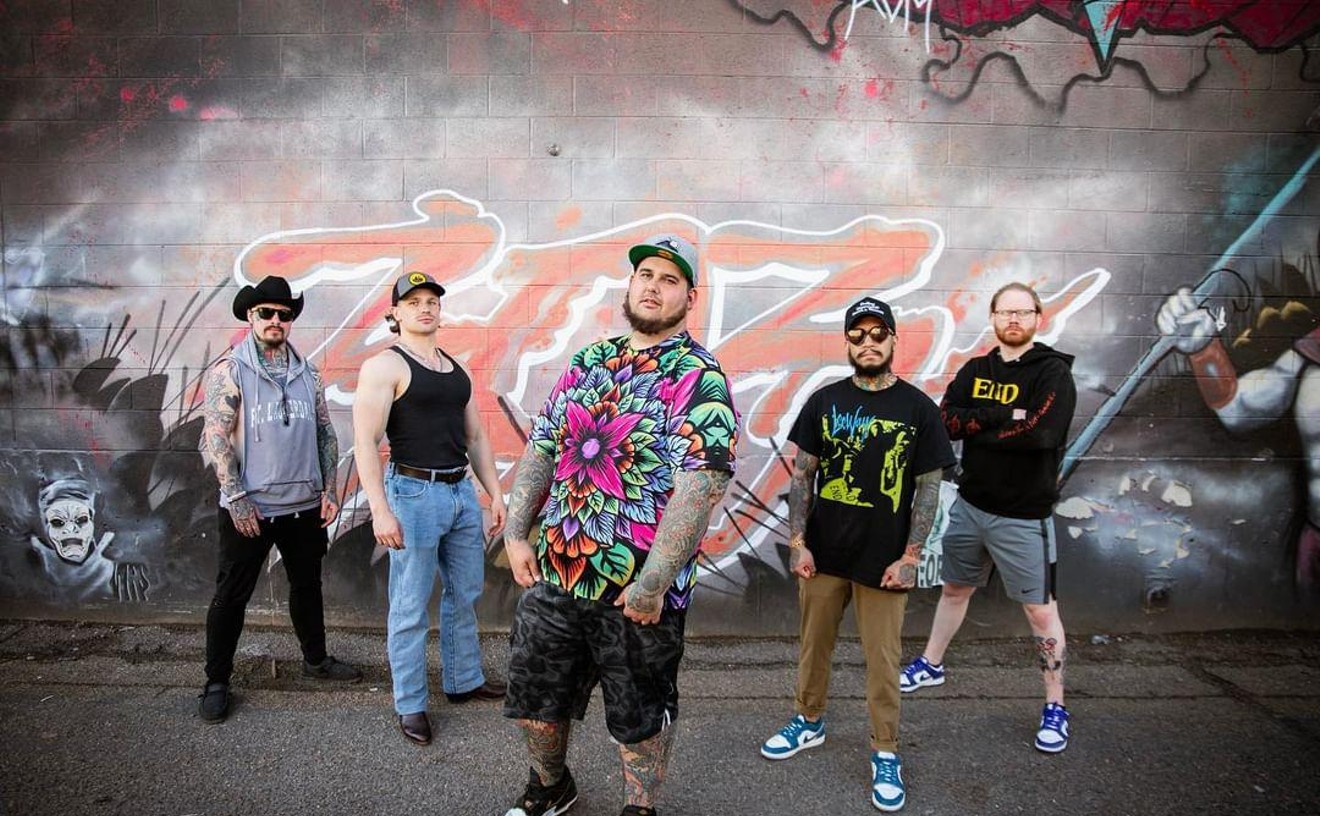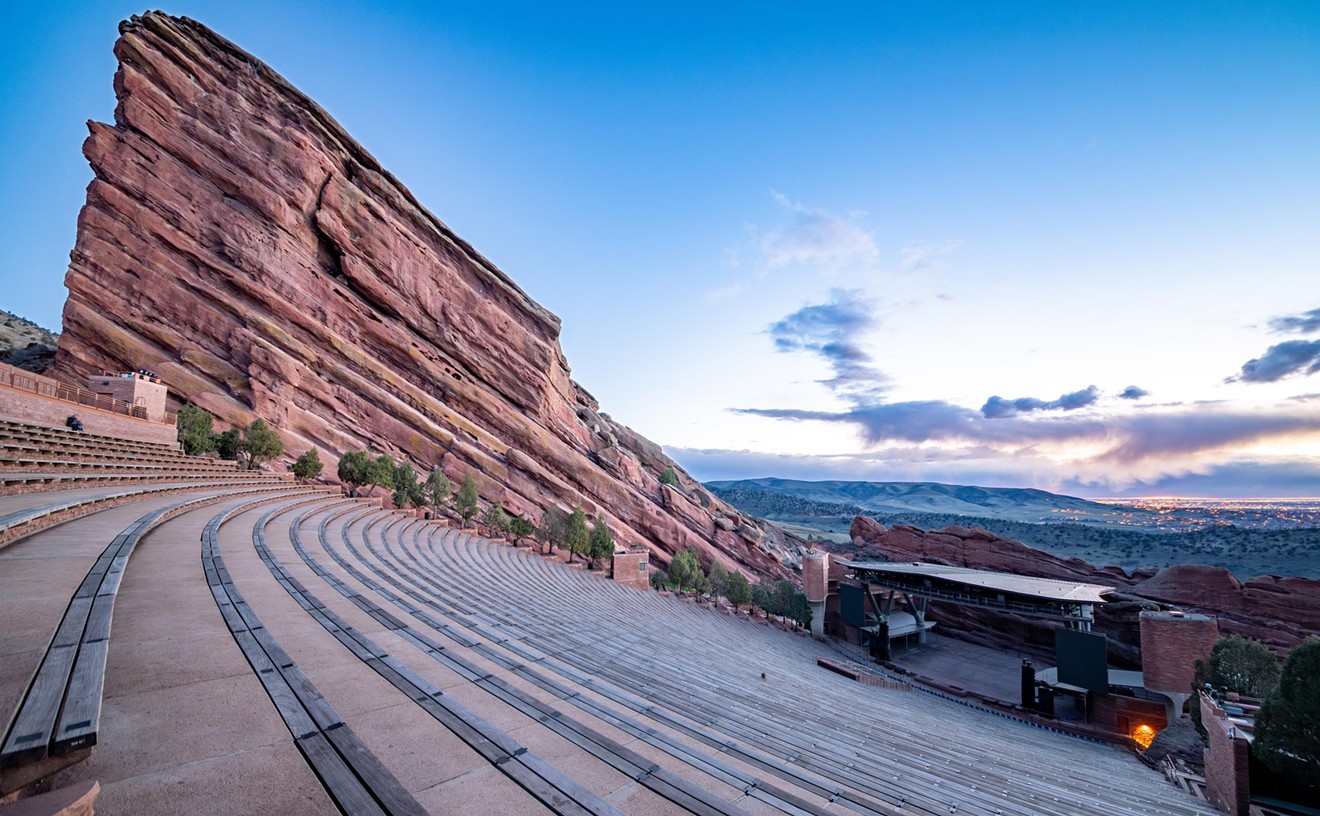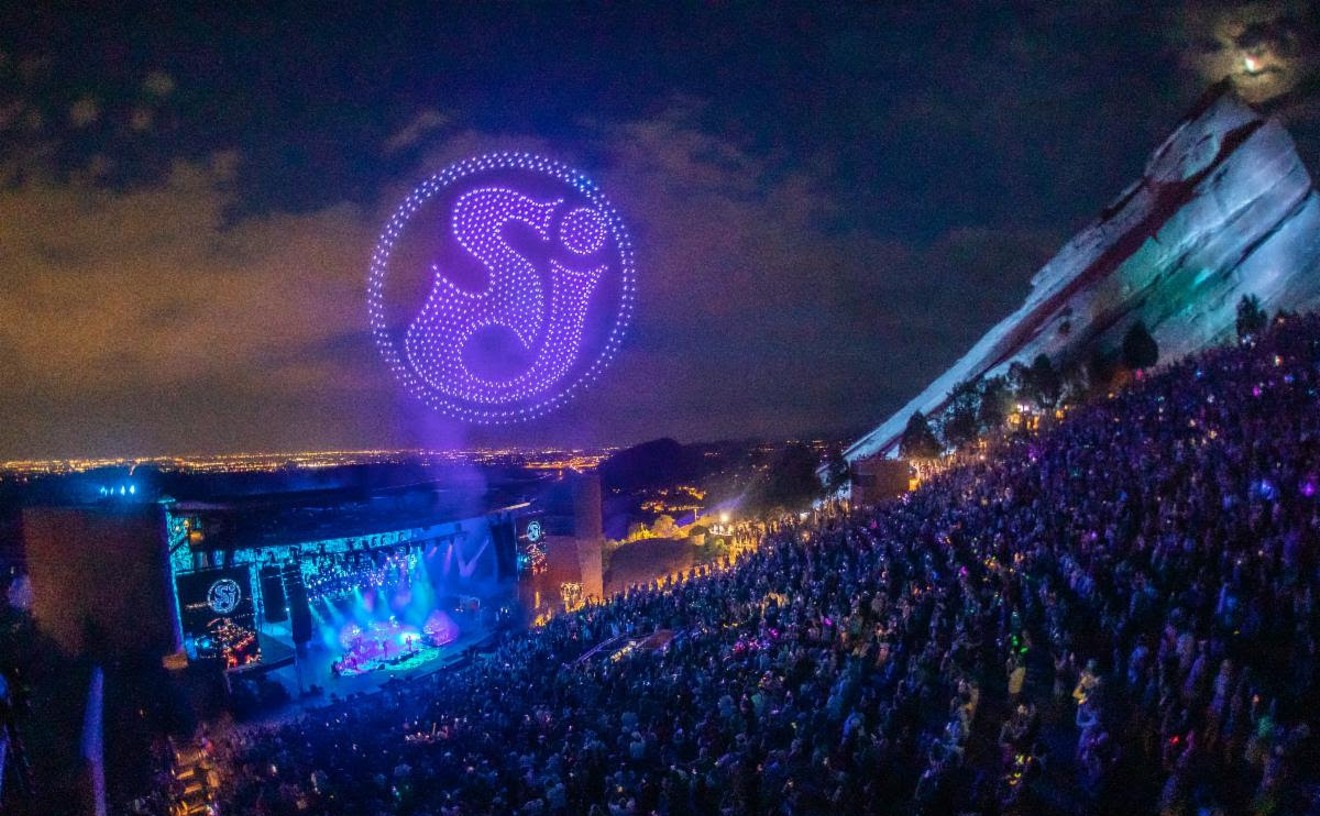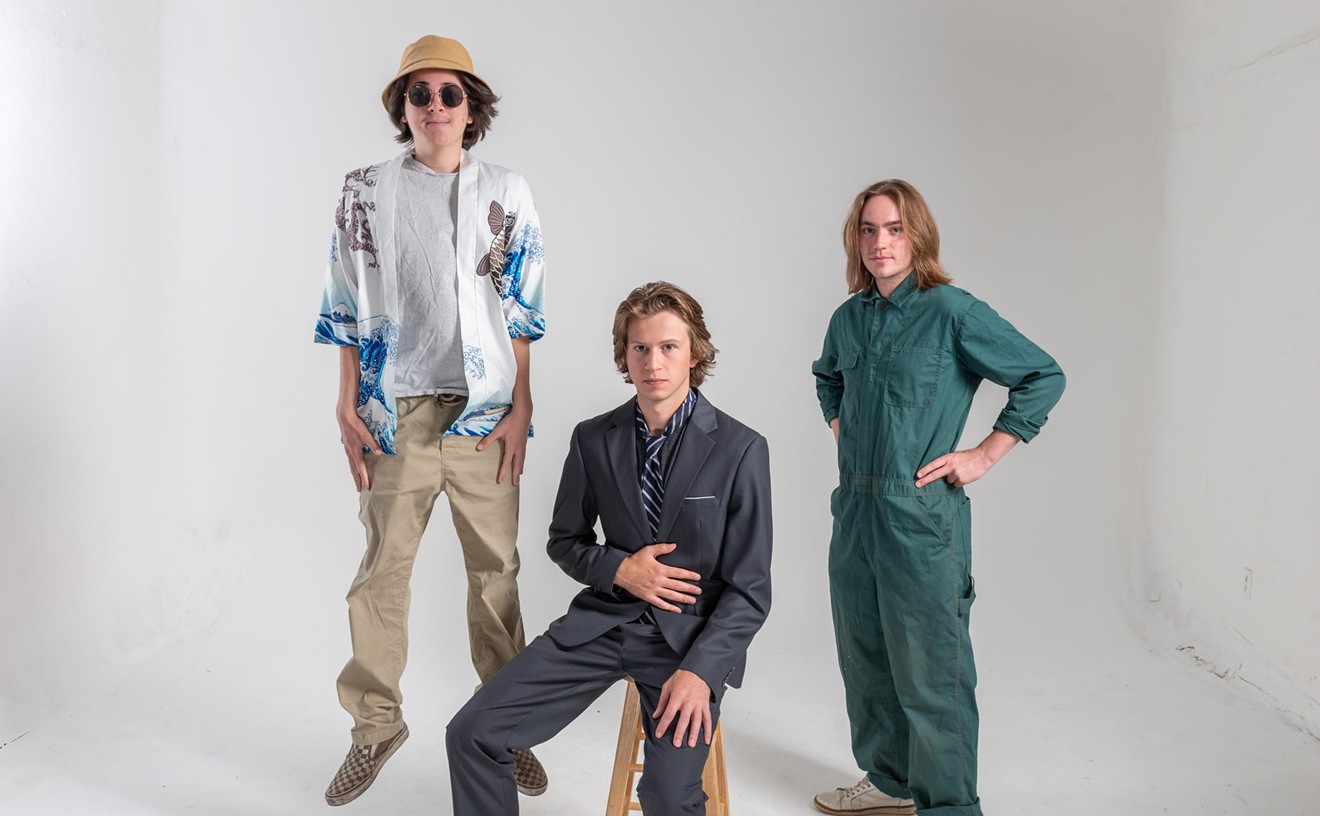On the fringes, though, area hip-hoppers may finally be about to receive the props they deserve, thanks to three devoted proselytizers--Craig Smith, Francois Baptiste and Hakeem Abdul-Khaaliq--and a team of supporters with experience in journalism, radio, television and film. At this point, it's too soon to tell if they'll turn Colorado into a hip-hop mecca, but they've got a better chance than plenty of precursors. Because instead of competing against each other, they're working together.
Right now, the project atop this trio's agenda is State of the Union, which will be, to the best of anyone's recollection, the first Denver-Boulder magazine dedicated entirely to hip-hop. Smith, State's frontman, describes the publication, which is slated to bow on December 2, as "a bi-monthly that will include articles and reviews of national and local acts. But it's also going to stress the different elements of hip-hop, like graffiti art. And we'll have interviews with people in the business that will prove that you can make it doing hip-hop here."
A native of Maryland who came of age in the Washington, D.C., area, Smith nurtured a love of hip-hop from an early age--so when he moved to Boulder in 1991 to attend the University of Colorado, he went through severe rap withdrawal. But things slowly began to improve, and Baptiste, a fellow CU-Boulder student who had relocated from New Mexico around the same time that Smith hit town, deserves a share of the credit. Along with cohort Alvin Lacabe and some friends, Baptiste started 3 Deep Productions in 1992; before long, they achieved a bracing success with a Fox Theatre gig shared by Common Sense and the Beat Nuts. Neither of these acts had big followings at the time, so when the date drew a standing-room-only throng, it indicated to Baptiste and other Colorado music insiders sympathetic to hip-hop (including the Fox's Don Strasburg and Small Axe Concerts promoter Bill Bass) that the market for rap was stronger than anyone had thought. As Baptiste puts it, "People began to realize that you could do a hip-hop show that would be nonviolent and that would sell."
Soon both Smith, as the head of CU's program council, and Baptiste, through 3 Deep, were actively involved in bringing national hip-hop outfits to Colorado; among the acts whose concerts they sponsored in whole or in part were De La Soul, the Goodie Mob, the Boot Camp Clik, Public Enemy's Chuck D and local artists such as Apostle and nGoMa. In mid-1996, Smith branched out by becoming a part-owner of Club Mecca, a Boulder venue that specialized in hip-hop, and although it lasted less than six months, it is remembered by the music's aficionados as a bold experiment that resulted in exciting concerts by the Roots, the Alkaholiks and others.
When Club Mecca folded, Smith took off for New York City and landed a position with Innovative Artists, a well-regarded talent agency. But before long, the oppressiveness of the environment began to wear him down. "Colorado really shaped me in the time that I was here," he says. "I was ready to see grass and trees and sky. Besides, there were some exciting things going on in Denver, and I wanted to be a part of them."
Abdul-Khaaliq was right in the middle of Colorado hip-hop's rising tide. Along with DJ Chris Nathan, he has been a major player in Eclipse, which can be heard Sunday evenings from 7 to 10 p.m. on KGNU-FM/88.5, Boulder's invariably fascinating public-radio outlet. He is also one of the driving forces behind The Bizness, a CD filled with songs by area rappers and R&B performers. The disc serves as the soundtrack for a film, also called The Bizness, that Abdul-Khaaliq expects to finish in the first half of 1998. "It's a documentary about local artists who are struggling to make it in urban music," he divulges. "There are cameos by Run DMC and Shinehead, and a lot of artists from here who people are going to want to know better."
Baptiste has also been exploring new territory via Rhythm Visions, a hip-hop, R&B and reggae video program that airs Fridays at midnight and Sundays at 11:30 p.m. on KBDI-TV/Channel 12. The show has been a Channel 12 staple since the Eighties, and a number of important figures in the Denver music community, including DJ K-NEE, have served stints as its host or producer. Earlier this year, the man in charge was Eric Dixon, but he decided to move on after landing a position with the Encore Network. Before he did so, however, he gave Baptiste a call. "He asked me, 'Hey, do you want to do this?'" Baptiste says. "At first I was really nervous about it. I didn't think that I would have the time. But it just falls into everything I'm doing already." For the past two months, Baptiste has worked closely with Rhythm Visions frontman Ed Gillespie and even stepped before the camera for one episode. His TV debut went well, but he promises that it won't become a regular thing. "I probably won't do that again. Ed's great--and I like being behind the scenes more."
With Rhythm Visions, Baptiste has a great platform with which to promote State of the Union, where he is a committed contributor and cheerleader. Also part of State is Abdul-Khaaliq, who at press time was lessening his involvement in KGNU's Eclipse in favor of a new, as-yet-untitled program he hopes to have on the station soon, as well as a second, "underground" radio broadcast that has already spawned a number of mix tapes that are commercially available. (Call 509-2242 to learn more about these last two ventures.) Abdul-Khaaliq is scheduled to write a regular State feature called "Pre-School," so named, he says, because "instead of focusing on old school or new school, I'll be looking at the early days of rap and how it was more revolutionary, and more about self-awareness. I want to introduce people to early griots like the Last Poets and Gil Scott-Heron, and let some of the younger generation become a little more aware of where hip-hop's roots come from."
"I'm upset with hip-hop right now," he goes on. "I'm tired of all the videos with everybody sipping champagne and people pretending they're Italian when they're black, and watching all the sisters parading around half-nude. To me, none of this is helping people out. Hip-hop used to be an art form, and it can be again if we can get away from all the crime and the bullshit that goes on. That's where I'm coming from, and I'm trying to pull Colorado in the same direction."
Folks from outside the area are beginning to recognize the efforts of Abdul-Khaaliq and his associates. The Source, one of the country's most widely read rap and R&B publications, is scheduled to run an article by journalist Mark Armstrong about Denver-Boulder hip-hop in its January issue. With encouragement like this, the group behind State of the Union (including graphic designer Petey Helm) believes that its time has come. The magazine is starting modestly--2,000 copies per issue, with distribution to Denver, Boulder, Colorado Springs and Fort Collins. But the numbers aren't as important to Smith as is State's mere existence.
"We're trying to uplift the scene in general," he says. "We just want to get this area known, and I think that's what we're going to accomplish.











